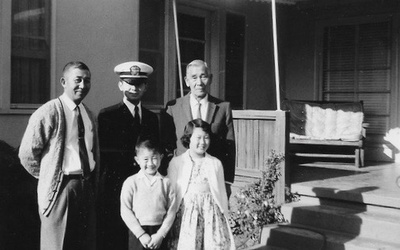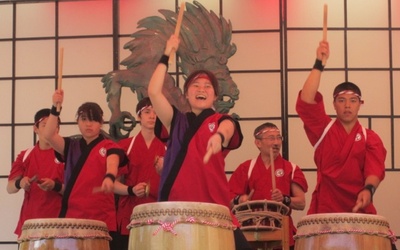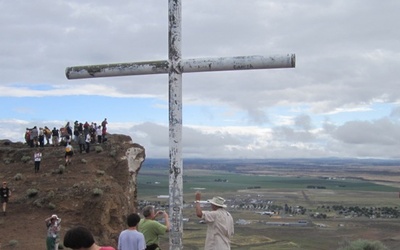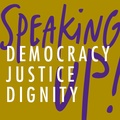
Stanley N. Shikuma
Stanley N Shikuma é escritor, artista de taiko (bateria japonesa) e ativista comunitário. Ele se apresenta com Seattle Kokon Taiko e dirige Kaze Daiko (um grupo juvenil de taiko), e também foi intérprete, compositor e percussionista em novas óperas, trilhas sonoras de filmes mudos, dança Butoh e teatro de fantoches. Como ativista social, Stan escreve e dá palestras sobre Direitos Civis, história nipo-americana e Taiko. As afiliações incluem trabalho com a Peregrinação de Tule Lake, Liga de Cidadãos Nipo-Americanos (JACL), Comitê de Veteranos Nisei de Seattle e Fundação NVC, Aliança Trabalhista Asiático-Pacífico-Americana (APALA), Grupos Regionais de Taiko-Seattle e Aliança Comunitária de Taiko.
Atualizado em junho de 2019
Stories from This Author
Sansei: Sobre ser nipo-americano em tempos de crise
10 de Julho de 2019 • Stanley N. Shikuma
[Em abril de 2017, pediram-me para falar sobre o que minha identidade nipo-americana significa para mim e como isso informa meus valores de justiça social, especialmente em relação ao fato de eu ser “terceira geração” (Sansei). Isto ocorreu pouco depois de a segunda tentativa de proibição muçulmana ter sido bloqueada pelos tribunais, mas antes da terceira tentativa ser mantida. Foi também um ano antes da política de “tolerância zero” adoptada pelo Departamento de Justiça que precipitou a crise de separação …
Taiko as Folklore
19 de Setembro de 2013 • Stanley N. Shikuma
Since ancient times, taiko has played an important role in the folklore of Japan. Taiko appear in many Japanese myths and legends, and it is the principal instrument for the folk music of that island nation. In recent times, taiko has taken root in North America, largely among the third and fourth generation descendants of Japanese immigrants (Sansei and Yonsei). Can folklore survive and is it still useful to modern day Americans? Is taiko being used to develop or create a …
Tule Lake Segregation Center: Misperceptions and Misnomers Surrounding Resistance to JA Incarceration - Part 2
29 de Agosto de 2013 • Stanley N. Shikuma
Read Part 1 >>3. Internee or Incarceree: Say What You Mean In the 1960s and 1970s, an attempt was made to move away from the government’s WWII era euphemisms of “evacuation” and “relocation”, which resulted in widespread use of the terms “internment” and “internment camp” in their place. Most people at that time were not aware of the Department of Justice camps and the specific legal definition of internment and internee. Current scholarship on the topic shows the widespread use …
Tule Lake Segregation Center: Misperceptions and Misnomers Surrounding Resistance to JA Incarceration - Part 1
28 de Agosto de 2013 • Stanley N. Shikuma
Words can reveal truth or hide it. It is one thing when a poet employs unusual and imaginative phrases for artistic effect but quite another when the government uses euphemisms—the President, Congress, the courts, the army, the police—for it is certain that they do so to hide intent, deceive people, distort reality, and avoid responsibility. If the media passively accept these verbal distortions (or act to amplify them) public accountability becomes virtually impossible. And if corporate interests benefit from the …






